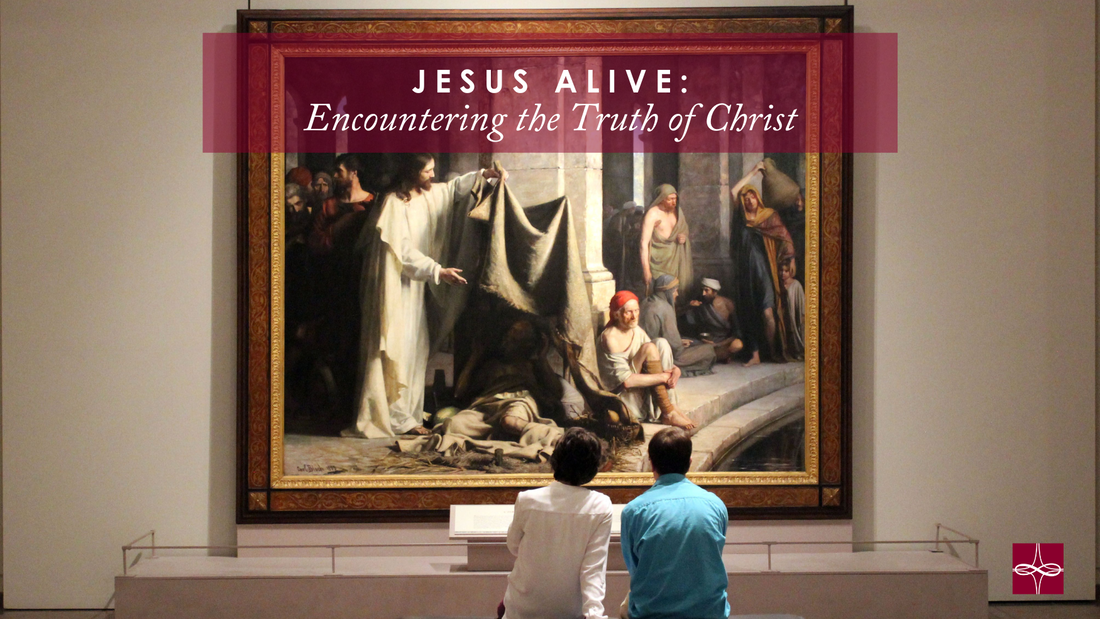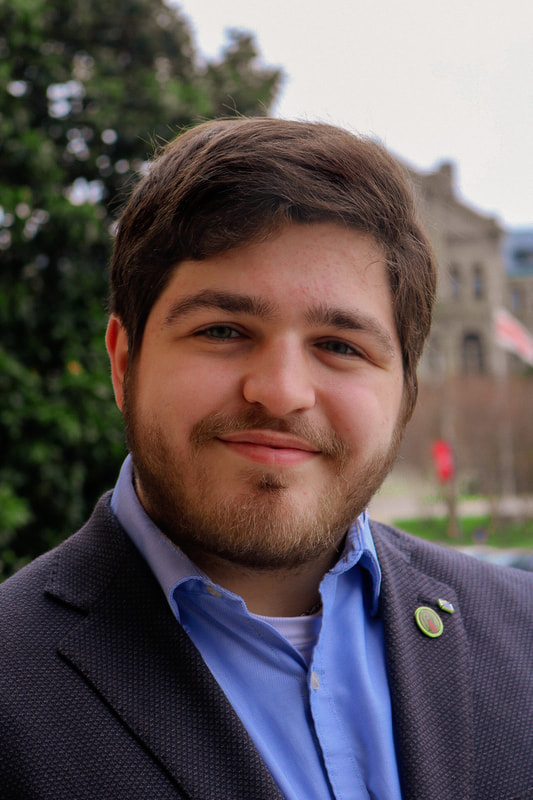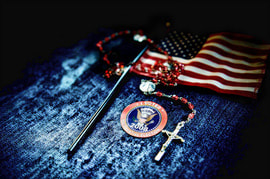|
I think there is something special about a cover—about taking a song, a painting, or a movie and recreating it within the modern frame of mind. Aretha Franklin’s bold and unapologetic “Respect” is a perfect example, as she interprets the song as a Black woman in the 1960’s. As is Jimi Hendrix’s “All Along the Watchtower,” in which he narrates the song with hauntingly beautiful guitar riffs. In visual art, Andy Warhol recreates the portrait of Mao Zedong with a messy array of bright colors—an unusual depiction of the dictator. Finally, modern movies, headlined by the Cohen Brothers’ True Grit, give life to old characters and stories, recreating them for new audiences. However, even the Beatles, the most covered band of all time, cannot compete with the millions of interpretations of Jesus Christ. Thousands of artists have painted Christ crucified or the Madonna and Child. Everyone from Van Gogh, Basquiat, or da Vinci have painted Jesus Christ, each in their own manner. It can be mind-numbing to try to flip through them all, viewing each painting, alien to the others, and, oftentimes, to us. There are always two questions to ask when discussing art: “What is this artist trying to say?” and “What do we think he or she is trying to say?” These questions matter much more when investigating faith. In a special way, how artists of all disciplines—including sculptors, writers, or directors—interpret Jesus will affect us. Every Catholic, no doubt, thinks of Jesus through some piece of art or another, but Jesus is more than just a collection of paints, words, or images. Jesus is alive. It is tempting to trap Him in a Caravaggio, an El Greco, or even in the Passion of the Christ—to prevent Him from challenging us. Jesus as represented in art cannot call us out in our sins; He cannot tell us the hard truths we need to wrestle with. Even further, we should not trap Jesus in the Church or solely in the Mass. Yes, we are oftentimes challenged in specific ways during the Mass, especially when a priest gives a difficult homily. It can be easy, however, to selectively hear the priest, interpreting him and hearing only what we want to hear. We often want a sanitized Jesus, one that affirms us and makes us feel good. But while Jesus resides in the tabernacle and comes to meet us in every celebration of the Eucharist, He cannot be left there. Jesus wants to encounter us personally in order for us to help others encounter Him. Jesus always challenged His disciples to worship, act, and believe in accordance with truth. Jesus was not “sanitized” or acting in the “proper way” when He overturned the tables of the money changers; He was not “sanitized” when He described the narrow way; and He surely was not clean and tidy when He died on the Cross. Jesus defied our expectations. He was filled with passion for God’s truth. While He is Beauty itself, Jesus often made His listeners look away as they were unable to embrace the unsavory truth that can be hard to swallow. I enjoy going to Washington’s National Gallery of Art or New York’s MET, but next time I see Christ there, I will be reminded that He is not trapped in the golden walls of the frame. Jesus is alive, living in the Eucharist and in others. While it is beautiful to witness Jesus in the arts, we must remember that Christ lives in the audience, the museum goers. While the beauty of the art itself is mesmerizing, Christ is alive in flesh, both on the altar and in people who remind us that, while beautiful, Christ’s message is a challenge.
0 Comments
"When you read God’s Word, you must constantly be saying to yourself, 'It is talking to me, and about me.'"
– Soren Kierkegaard This past fall, while on a retreat, I took a long walk with a friend. As we enjoyed the fresh air, we talked about our spiritual goals and areas for growth. For me, my area for growth seemed clear: I needed to refresh my relationship with the Bible and better use it for meditative purposes. Then my friend, who isn’t Catholic and has what my housemates call “a good Baptist Bible,” said something that made me both chuckle and cringe: “Yeah, I didn’t really know that Catholics don’t really use the Bible too much until I met so many this year.” Cue record-scratch sound. Cue cartoon eyeballs popping out of my head. Cue fumbling words. “Um well, that’s not really true…” I went on to say some jumble of words to correct her and explain the Catholic perspective. The truth is, the Scripture has a deep place in the heart of the Church. As a Catholic, I grew up hearing Old and New Testament alike each week at Mass, and as a (life-long) Catholic school girl, I not only heard and prayed on Bible stories but studied them. I am very grateful for my education; even if I can’t quote chapter and verse, I have a good understanding of the Bible’s history & context, as well as its eternal Truths. Yet clearly, my failure to embrace Scripture as a meditative and prayerful tool more closely looked to some (particularly non-Catholic Christians) as a general ignorance or dismissal of it. One thing you learn quickly in Bible-belt Kentucky is that people love and KNOW their Bibles. My friend’s comment made it clear: The Bible is important, and I needed to get my stuff together and meet God’s word more personally. So I did. I started a plan to read a little of the Old Testament, the Psalms, and the New Testament each day. Two months into this plan, I realize that while it is the story of God’s revelation to us, God’s people, it is also a revelation of myself, of who I am in relation to God. While for many, the Bible brings them close to know God, I find that reading it makes me stop and go, “Just who are you, God?! And how are you calling me?” (I imagine God hears this and chuckles, thinking It’s working!) But as a housemate reminded me, the Bible wasn’t made to be an easy read. I won’t ever “finish” it and be done, and God won’t give me a “Good Christian Award” just for reading it cover to cover. Though I already knew many of these stories and words well, they feel new to me. When I read it with a prayerful mind, and not an analytic, academic one, I see myself in the stories: my own failings, my own desires, my own questions. I won’t be able to quote chapter and verse at the end of this year; nor will I have a “good Baptist Bible” covered in ink and Post-It notes. But I’m learning to approach Scripture less like Martha (“Did I do it right? Am I on schedule?”) and more like Mary, simply by being with it. Then again, ask me how I feel in a few weeks when I get to Deuteronomy and Leviticus. Katherine Biegner recently graduated from Assumption College and is currently serving as a tutor and mentor in the Christian Appalachian Project in rural Kentucky. Decisions made in the voting booth are deeply personal and reflect a combination of our experiences and beliefs. And as Catholic American citizens, now is a critical time. The outcome of the presidential election will have far-reaching consequences and it is our responsibility to seriously consider our choice of leaders and policies that will guide our nation and our state.
Catholic voters are once again caught between their desire to participate in civic life and the choice of candidates for elected office falls short of a vision of the common good as rich and full as Catholic social teaching presents. Consequently, many have become subject to the mentality that being Catholic and politically active are incompatible. But this is not so. Catholics are called to understand and accept the Church’s teaching as a means of becoming more engaged in political life. It may be challenging, but it is something we have to wrestle with. At an address this past month, Archbishop Chaput of Philadelphia said, “We believe in the separation of Church and State, but that is not the same thing as separation between faith and politics. Faith is what we believe, politics is how we act.” He advised Catholics to “apply the principles of Catholic social teaching – such as the common good and subsidiarity”, to their voting decisions. We have the duty as citizens to participate in our own governments for the sake of the common good. By not doing so, we abandon the political process and risk unjust laws being formed. Poorly formed legislation and leadership may come about anyway, but it should not come about as the result of Catholics disregarding the process. Casting an informed vote is one of the best things we as Catholic citizens can do for our country. It is the duty of citizens to contribute – along with the civil authorities – to the good of society in a spirit of truth, justice, solidarity and freedom. “The love and service of one’s country follow from the duty of gratitude and belong to the order of charity" (CCC 2239). And so as Catholic citizens, we enlighten and develop our consciences as citizens in accordance with the principles of Catholic Social Teaching. One straightforward and immediate way Catholic voters can make a meaningful contribution to public discourse is to draw the larger public’s attention to issues that are essential to Catholic social thought. The most essential of these is the dignity of every human person and each one’s basic right to life from conception to natural death. Respect for human dignity has an essential role in the respect of all human life, especially the fundamental right to life. It is a natural principle that is supported by our beliefs; it is our faith, as His Holiness states in Porta Fidei, that “opens our eyes to human life in all its grandeur and beauty.” As Catholic voters, we have to see ourselves as bridge builders. According to Bishop Richard Pates of Des Moines, Iowa, and Chairman of the Committee on International Justice and Peace for the USCCB, “The Catholic vision is one of collaboration, not coercion, among individuals, governments, businesses and other institutions.” Voting in this election is not based on profit or having a winning ideology. Our “Catholic vision” is one that creates an environment in which all people can develop and ultimately flourish. Along with tens of millions of fellow citizens, I urge you, Catholic voters, to cast your ballot today. Commit yourself to creating conditions that fully respect the dignity God has bestowed upon all of us. Our political responsibility doesn't stop at the polls this Election Day. We must always respond to the social issues, locally and nationally, that affect the dignity in which we are all created. Sarah Morris is a senior Politics major at The Catholic University of America. To promote real change, we must start with ourselves. Cultivating a culture, especially one contrary to what’s popular, requires education and conversion, beginning with those who cultivate. If we are to teach others, we must first put our best efforts into rooting ourselves in these truths. For me, it’s about a God-centric, and love-centric lifestyle. Cliché as it may be, above all things I believe in love. For many, including myself, this is a mission, an answer to a calling; a passion, a core-belief and a lifestyle.
This week, Yale University is holding a series of events organized under the title “Sex Week.” This has been taking place since 2002; however the University banned it last year stating that had created a “hostile sexual environment for women.”[1] Some may think given this assessment that the door had closed for good, but a few weeks later the decision was reversed. The goal of Sex Week is supposed to be sexual education, and an opportunity to “discuss sex openly.”[2] Another group on campus decided to provide an alternative to Sex Week, sponsoring talks and activities of their own because they believe Sex Week inappropriately emphasizes “sheer, gratuitous and physical pleasure.”[3] I know this may sound like a sharp critique of a program that sponsors the event “Work It: Founder of Babeland Sex Toys talks about Queer-Friendly Business and Pleasing Women”, but hear me out. One area that I have devoted much of my time and study to is John Paul II’s Theology of the Body and overall call to chastity and sexual dignity. A topic many young adults avoid, I see it as absolutely vital not only for my character, but also for my faith journey and ultimately my vocation. The idea that our bodies can have a specific purpose in and of themselves is not a widely accepted idea in current society, never mind on a college campus. Although many dating couples claim to be unconcerned about the permanence of their relationship and immune to the adverse consequences of their actions, sex for such couples introduces an exclusively physical bond that is illusory, disordered and devaluing of the gift of total intimacy. It is possible for a wide variety of people to agree that it is easy for us to mistake physical intimacy for love. This is a logical idea because physical intimacy has a unifying power, which is one of the attributes of love. The problem lies in the fact that lust also has a tendency to draw two people together, and this counterfeit intimacy can be difficult to distinguish from the real thing.[4] This is not to say that the lack of chastity as a core value causes all relationships to deteriorate into lustful encounters, but rather that the likelihood of a couple being able to accurately assess the worth and sincerity of a relationship is less. When a couple is dating, it is love that they seek. As stated in the Catechism, Catholics believe that “either man governs his passions and finds peace, or he lets himself be dominated by them and becomes unhappy.”[5] It is often the case that a person’s intentions become masked by desire, usually of a sexual nature, and that is where chastity comes into play. Supporters of Sex Week have criticized the founders of True Love Week for having a “narrow minded view of sex” and “encouraging marriage” rather than providing ‘sexual education.’[6] While sex is pleasurable, it maintains greater importance than pleasure. Most couples do not deliberately use each other, but sometimes the objectification that ensues is unconscious. Though this is not a constant with every couple, pop culture and magazines, like Cosmopolitan, “urge people to take the sexual pleasure that’s due them”[7] creating an environment that praises such activity. This might be why Sex Week never assumes any of its participants are in any sort of committed relationship. However, the fact remains that the act of sex between two people creates a bond dissimilar to that of any other. When two people choose to promote and express their romantic affection or “love” through fornication, the trivialization of human sexuality and its virtue is present. Christopher West, who has written several books on theology of the body, describes this as “telling lies with the body”. In sex, the body is saying, “I give myself to you freely, totally, faithfully, and fruitfully”… Sound familiar? If you’ve ever been to a wedding, you’ll recognize those lines from traditional wedding vows. In marriage, God enables humans to use their bodies to create a love that is more than just the sum of their parts. By enjoying the expression of full love without giving full love, and accepting the commitment and sacrifice, the couple wounds the relationship and one another. In the words of Pope John Paul II, “Only the chaste man and the chaste woman are capable of true love.” By keeping the focus and order of dating relationships on happiness, couples come to discover that sacrificial love brings true joy. Where there is selfishness, there is no love. Taking into account the intrinsic truths of sexual bonding, properly tempered desires, and a proper understanding of the value of a full gift of self is necessary even for couples neglecting to acknowledge their damaging present actions in order to prepare for a potentially permanent and unitive future. To reiterate, I understand these are not popular views, and the ideas and facts I have presented may provoke less excitement than a sex toy exhibition. However, nothing short of “til death do us part” would be making any of Sex Week’s agenda relevant to this university student. In fact, some of it will never apply to me, and that’s okay with me. I know what God’s love looks like and it’s because of this that I know my own worth and dignity as a woman. This is the love that’s worth defending, and certainly worth waiting for. Angela Chiappetta is the Program Development Associate for the Catholic Apostolate Center. [1] http://www.thecollegefix.com/post/10123 [2] http://www.yaledailynews.com/news/2012/feb/02/true-love-week-provides-alternative-to-sex-week/ [3] http://www.yaledailynews.com/news/2012/feb/02/true-love-week-provides-alternative-to-sex-week/ [4] Evert, Jason. If You Really Loved Me. Ann Arbor, MI: Charis /Servant Pub., 2003., 62 [5] Catechism of the Catholic Church. Liguori: Liguori Publications, 1994. §2339 [6] http://www.yaledailynews.com/news/2012/feb/02/true-love-week-provides-alternative-to-sex-week/ [7] Eden, Dawn. The Thrill of the Chaste: Finding Fulfillment While Keeping Your Clothes On. Nashville: Thomas Nelson, 2006. 2 |
Details
Archives
July 2024
Categories
All
|
About |
Media |
© COPYRIGHT 2024 | ALL RIGHTS RESERVED




 RSS Feed
RSS Feed